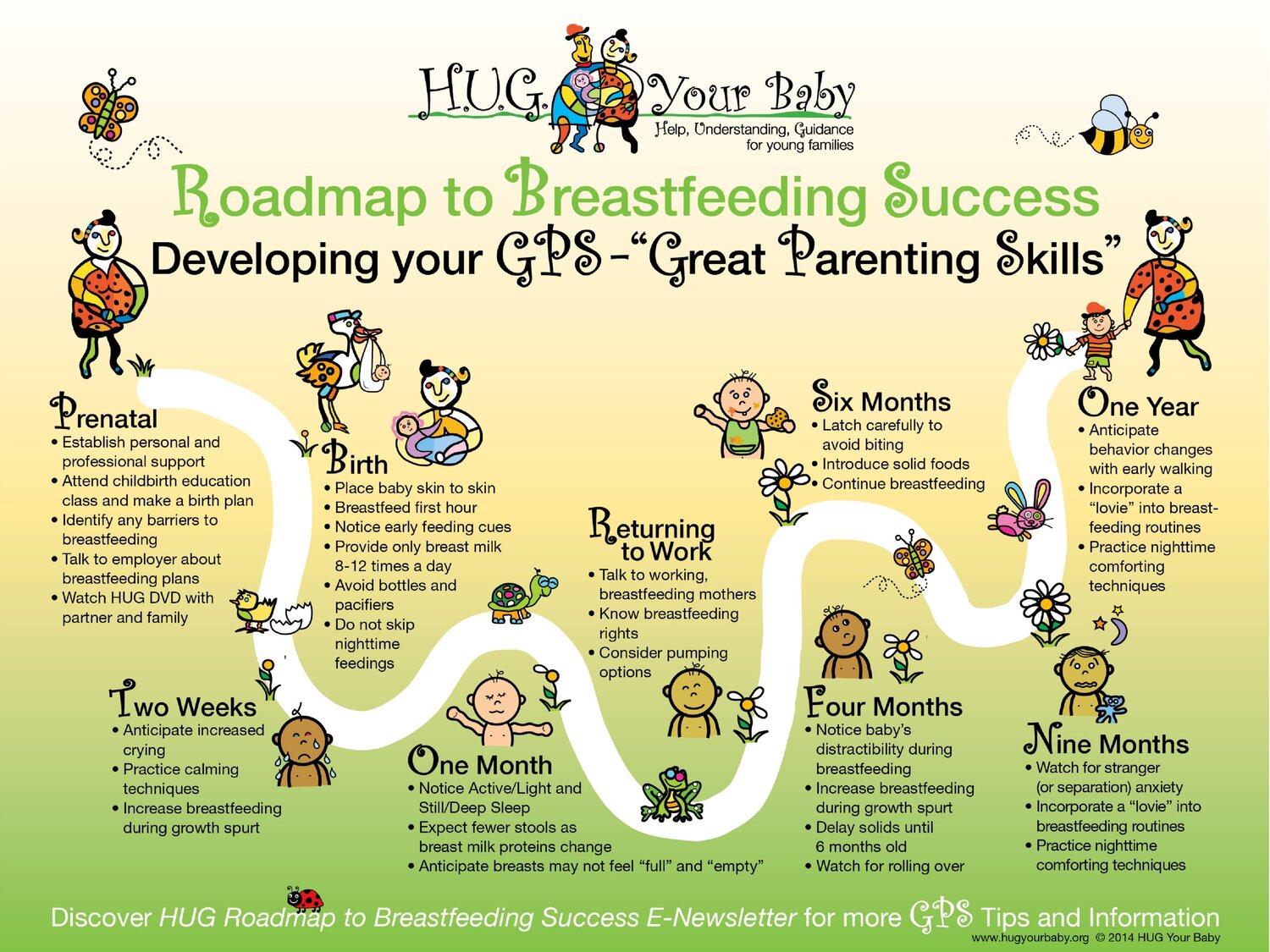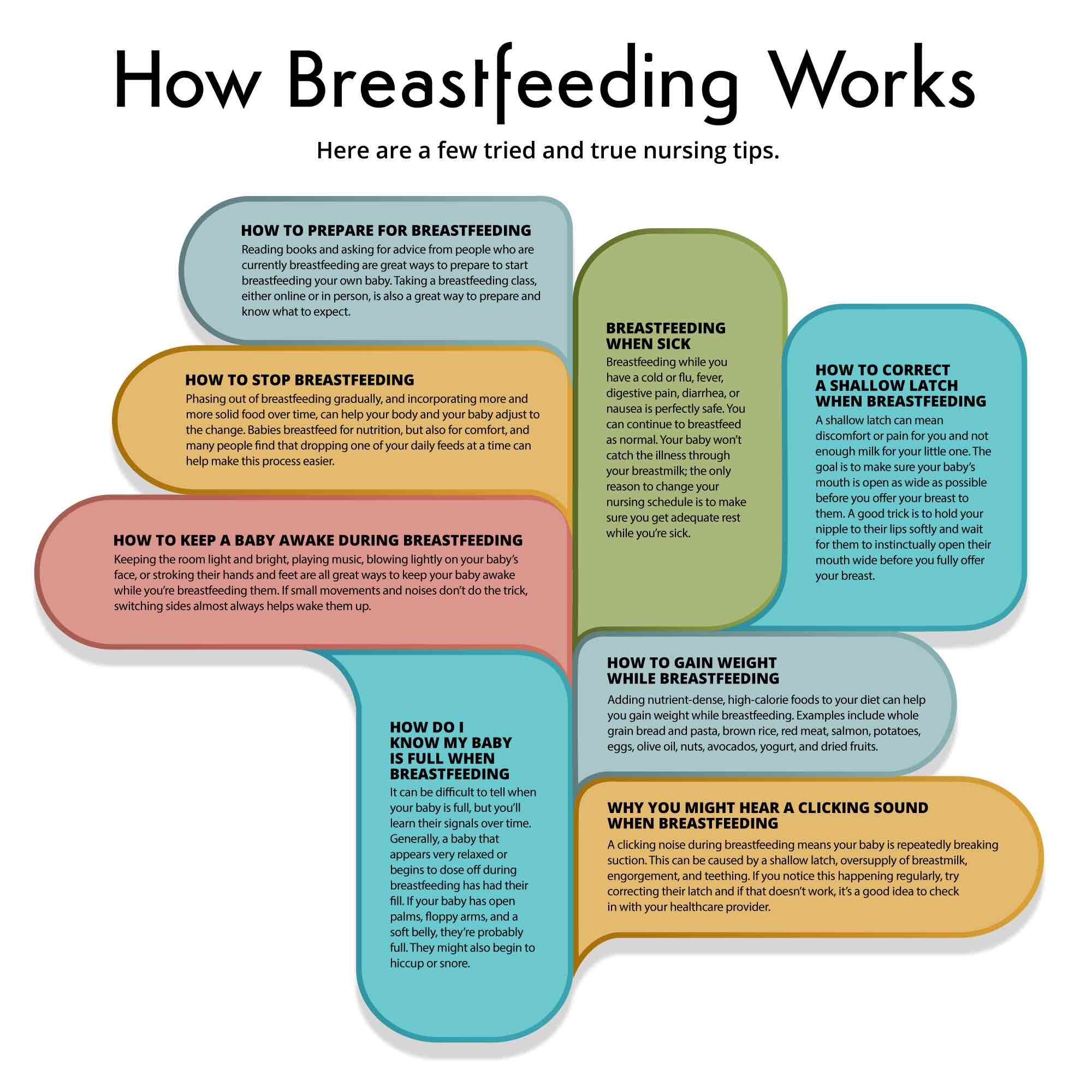
Key facts
- Breastfeeding provides all the nutrition your baby needs during their first 6 months of life.
- Any amount of breastfeeding is beneficial for you and your baby.
- Breastfeeding is a set of skills that both you and your baby will learn.
- Ideally, your baby will begin breastfeeding soon after they are born.
Breastfeeding your baby
What are the benefits of breastfeeding?
Breastfeeding is a natural way to feed your baby. It provides all the nutrition your baby needs during their first 6 months of life. It also helps to create a loving bond between you and your baby.
The first milk you produce is called colostrum. It is rich in fat and antibodies, which newborns need to build their immunity. Breastmilk changes to meet the needs of your baby.
Any amount of breastfeeding is beneficial, even if it’s only for a short time.
Benefits for your baby
Breastfeeding helps to:
- protect your baby against infections and develop their immune system
- prevent your baby becoming overweight
- lower the risk of developing leukaemia
- protect against sudden unexplained death in infancy (SUDI)
Benefits for you
Breastfeeding:
- helps your recovery after birth and helps your uterus return to its pre-pregnancy size
- helps you to return to your pre-pregnancy weight
- may reduce your risk of breast and ovarian cancer
- helps prevent high blood pressure, heart disease and stroke
Benefits for your family
Breastfeeding:
- is cheaper than formula feeding
- can be more convenient

How will my breasts change during pregnancy?
Some of the first signs of pregnancy are breast and nipple tenderness. This is because even during the earliest stages of pregnancy, your breasts are getting ready to breastfeed.
Most women’s breasts and nipples change during pregnancy. These changes include:
- your breasts and nipples enlarging
- your nipples and areola (the skin surrounding the nipple) darkening
- veins in your breasts becoming more obvious
- your breasts feeling heavier
From the start of your second trimester, your breasts may start leaking colostrum. This is thick and yellow in colour at first. As your pregnancy progresses it will become almost colourless.
When does the first breastfeed happen?
Ideally, babies can begin feeding from your breast soon after they are born. Most maternity hospitals support breastfeeding within one hour after birth. At birth, your baby’s stomach is tiny, and they only need a small amount of milk.
Skin-to-skin contact between you and your baby is an important way to encourage early connection and bonding. It’s recommended by the World Health Organization for all premature and low birth weight babies.
What happens if my baby is in special care?
If your baby is unwell or needs special care, you may have to delay your first breastfeed. Speak with your doctors and midwife about your options soon after birth.
If your baby is expected to be premature or unwell after birth, your doctor or midwife may recommend expressing colostrum. Many women can express a few millilitres a day once they enter their third trimester. Colostrum is a good source of:
- growth factors
- immune factors
- important nutrients
How to get started with breastfeeding
You may want to let your baby find their own may to your breast using their natural instincts (baby-led attachment).
Or you may choose to hold them in a position that helps your baby attach to your nipple (mother-led attachment). There are many ways you may choose to hold your baby to feed.
- Sit comfortably with your back and feet well supported.
- Unwrap your baby and put them in a position that is comfortable for both of you.
- Your baby’s head, shoulders and back should be in a straight line, facing your body.
- Their mouth and nose should be level with your nipple.
- Gently stroke your baby’s mouth with your nipple to encourage them to open their mouth.
- As their mouth opens and their tongue comes forward, aim your nipple towards the roof of their mouth. Their mouth should be open wide with a part of your areola in their mouth, not just your nipple.
- When your baby attaches and starts sucking, try to relax your shoulders. This will help your let-down reflex.
Think about how it feels when you breastfeed. It should not be painful while they suck, but their mouth should follow a sucking and swallowing pattern.
Follow your baby’s lead when they show that they want to keep sucking or have finished.
Also look for baby’s cues to show that they’re hungry. Being awake, mouthing, sticking their tongue out, fussiness and wriggling are all instinctive feeding behaviours.
Common issues with breastfeeding
Breastfeeding can be easy, but it’s also a learning process for you and your baby. You may initially experience nipple tenderness and engorgement (full breasts) until your breastmilk supply matches your baby’s demands.
Breastfeeding is a set of skills that both you and your baby will learn. However, some women and babies have challenges when starting their breastfeeding journey.
Common breastfeeding issues for your baby
A hungry baby
It can take a few days for your colostrum milk to become mature milk. During this time your newborn may be hungry and unsettled.
Frequent breastfeeding helps manage this and will also increases your supply.
A sleepy baby
Labour and birth can be very tiring for you and your baby. It can take a few days for newborns to learn how to attach and drink from your breast. To help manage this, you may need to wake them to make sure they get the milk they need.
Cluster feeding
Babies often want to cluster feed when they go through growth spurts. Cluster feeding occurs when the baby wants many brief breastfeeds over a short period of time. This is normal and often happens in the first stages of breastfeeding and during periods of rapid growth.
Common breastfeeding issues for you
Breast engorgement — this is when your milk comes in and your breast become larger and feel heavy. It’s a common issue at around 2 to 5 days after birth. You can relieve very full breasts by feeding your baby more often.
Sore, cracked nipples — this is usually a sign that your baby isn’t attached correctly.
Some women get mastitis — an infection of the breast tissue. If you have mastitis, you will usually:
- feel unwell
- have a sore, firm or red area on your breast
If you experience this, it’s important to breastfeed as often as possible and promptly seek medical help.





